
Hochkönig: The Majestic Heart of the Austrian Alps
Hochkönig, nestled in the Austrian Alps, is a stunning destination offering breathtaking landscapes and a range of activities for nature lovers and adventure seekers. This mountainous area is known for its pristine beauty, with towering peaks, lush valleys, and crystal-clear streams. Whether you're visiting in summer or winter, Hochkönig promises unforgettable experiences. In the summer months, Hochkönig transforms into a hiker's paradise. With over 340 kilometers of marked trails, there is something for everyone, from easy strolls to challenging climbs. The area is also perfect for mountain biking, rock climbing, and paragliding. The picturesque villages of Maria Alm, Dienten, and Mühlbach offer a glimpse into traditional Austrian culture, with charming chalets, local festivals, and friendly locals. Winter in Hochkönig is a wonderland for snow sports enthusiasts. The region boasts 120 kilometers of ski slopes, catering to all levels of skiers and snowboarders. Cross-country skiing, snowshoeing, and tobogganing are also popular activities. The Königstour, a 32-kilometer ski circuit, is a highlight for many visitors, providing stunning views and a sense of accomplishment. After a day on the slopes, cozy up in one of the many mountain huts for some delicious Austrian cuisine and warm hospitality.
Local tips in Hochkönig
- Visit during local festivals to experience authentic Austrian culture and traditions.
- Bring layers of clothing, as the weather can change quickly in the mountains.
- Try the local cuisine, especially dishes like Kaiserschmarrn and Wiener Schnitzel.
- Purchase a Hochkönig Card for discounts on activities and attractions.
- Book accommodations early, especially during peak seasons, to ensure availability.
Hochkönig: The Majestic Heart of the Austrian Alps
Hochkönig, nestled in the Austrian Alps, is a stunning destination offering breathtaking landscapes and a range of activities for nature lovers and adventure seekers. This mountainous area is known for its pristine beauty, with towering peaks, lush valleys, and crystal-clear streams. Whether you're visiting in summer or winter, Hochkönig promises unforgettable experiences. In the summer months, Hochkönig transforms into a hiker's paradise. With over 340 kilometers of marked trails, there is something for everyone, from easy strolls to challenging climbs. The area is also perfect for mountain biking, rock climbing, and paragliding. The picturesque villages of Maria Alm, Dienten, and Mühlbach offer a glimpse into traditional Austrian culture, with charming chalets, local festivals, and friendly locals. Winter in Hochkönig is a wonderland for snow sports enthusiasts. The region boasts 120 kilometers of ski slopes, catering to all levels of skiers and snowboarders. Cross-country skiing, snowshoeing, and tobogganing are also popular activities. The Königstour, a 32-kilometer ski circuit, is a highlight for many visitors, providing stunning views and a sense of accomplishment. After a day on the slopes, cozy up in one of the many mountain huts for some delicious Austrian cuisine and warm hospitality.
When is the best time to go to Hochkönig?
Iconic landmarks you can’t miss
Hochkönig Bergbahnen - Ski amadé
Experience the ultimate alpine adventure at Hochkönig Bergbahnen, where stunning slopes and breathtaking views await winter sports enthusiasts.
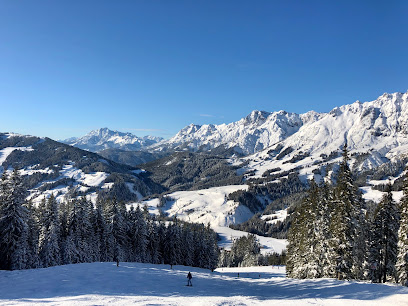
Steinbockalm
Discover Steinbockalm: A charming restaurant in Dienten am Hochkönig, offering authentic Austrian cuisine and stunning mountain views.
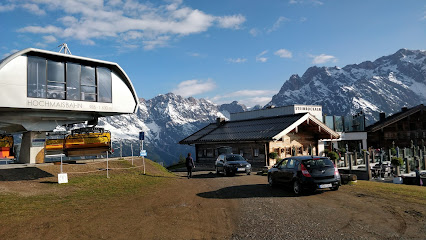
Berghotel Arthurhaus
Discover the serene beauty and adventure of the Austrian Alps at Berghotel Arthurhaus, a perfect getaway for outdoor enthusiasts and families.
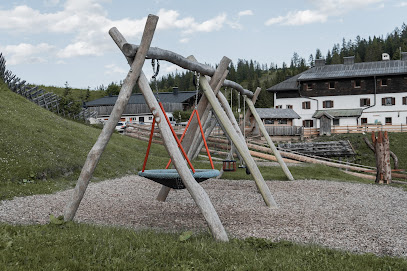
die HOCHKÖNIGIN - Mountain Resort
Discover luxury and adventure at die HOCHKÖNIGIN Mountain Resort, your ultimate alpine escape in the heart of Austria.
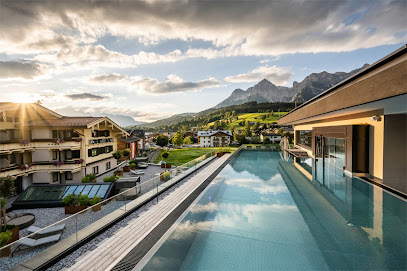
Bürglalm
Experience the best of Austrian cuisine at Bürglalm, surrounded by breathtaking alpine views in Dienten am Hochkönig.
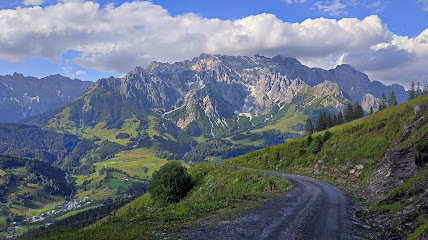
Toni's Almspielplatz
Discover the enchanting Toni's Almspielplatz, a family-friendly playground in Mühlbach am Hochkönig, offering adventure, nature, and breathtaking alpine views.
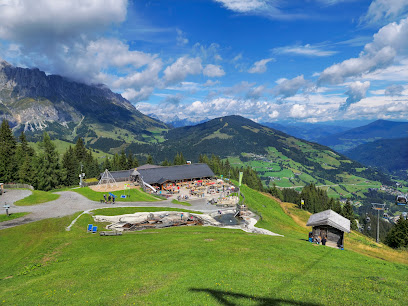
Kings Park Hochkönig
Experience the thrill of skiing in the stunning alpine landscape of Kings Park Hochkönig, Austria, where adventure meets breathtaking beauty.
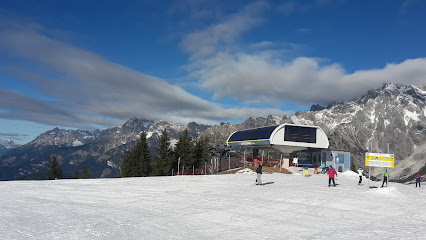
Matrashaus
Experience the charm of Matrashaus, a cozy mountain cabin in the Austrian Alps, offering stunning views and delicious local cuisine for a perfect alpine escape.
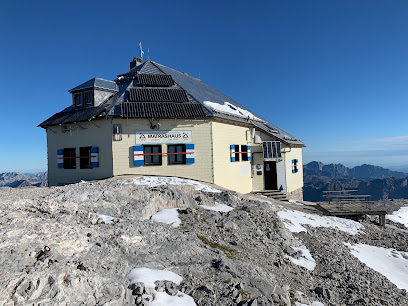
Erichhütte
Discover the charm of Erichhütte in Dienten am Hochkönig, the ultimate lodge for hiking and relaxation in the breathtaking Austrian Alps.
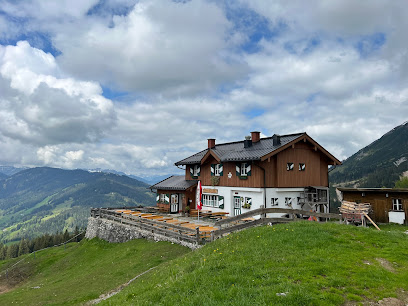
Hochmaisbahn Talstation
Experience the breathtaking views and outdoor adventures at Hochmaisbahn Talstation in Hinterthal, Austria, your gateway to the majestic Alps.
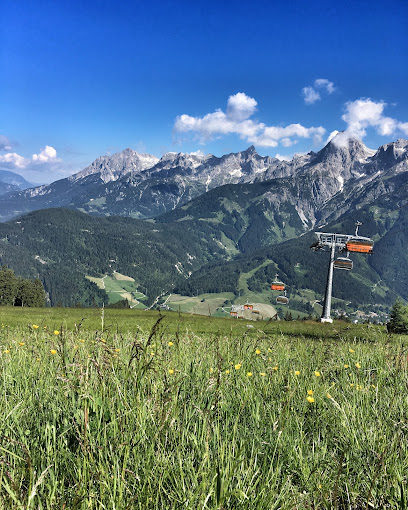
Ferienbauernhof Elmaugut
Discover the charm of Austrian farm life at Ferienbauernhof Elmaugut, where stunning mountain views meet authentic rural experiences.
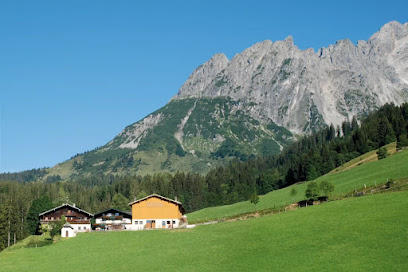
Königsjodler Klettersteig
Discover the breathtaking Königsjodler Klettersteig, a thrilling via ferrata in Dienten am Hochkönig that promises spectacular views and unforgettable climbing experiences.
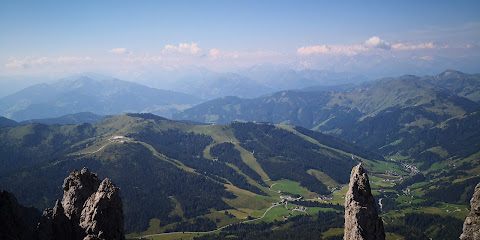
Spiegelsee am Hochkeil
Explore the breathtaking beauty of Spiegelsee am Hochkeil, a serene alpine lake surrounded by majestic mountains in Mühlbach am Hochkönig.
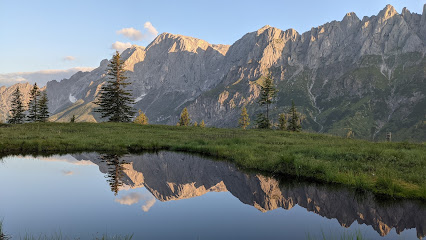
DAS HOCHKÖNIG
Experience the beauty and tranquility of the Austrian Alps at DAS HOCHKÖNIG, your perfect holiday home for adventure and relaxation.

Hochkönig-Stein-OG
Discover the exquisite craftsmanship of Hochkönig-Stein in Mühlbach am Hochkönig, where the art of stone cutting meets stunning alpine beauty.
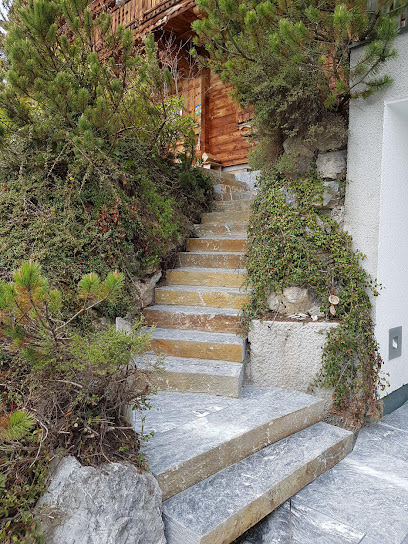
Unmissable attractions to see
Burg Hohenwerfen
Visit Burg Hohenwerfen, an enchanting medieval castle in the heart of the Austrian Alps, rich in history and breathtaking views.
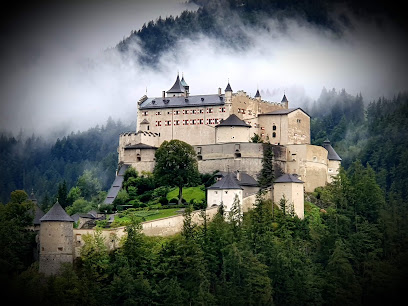
Eisriesenwelt
Explore the awe-inspiring Eisriesenwelt Ice Caves, the largest ice cave in the world, located near Werfen, Austria, a breathtaking natural wonder.
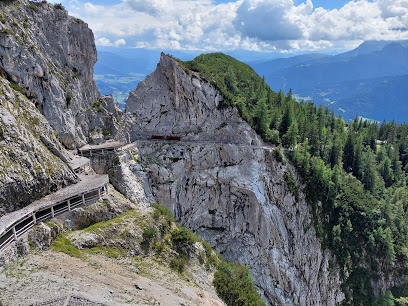
Liechtensteinklamm
Explore Liechtensteinklamm, an enchanting gorge in St. Johann im Pongau, where cascading waterfalls and scenic hiking trails await your discovery.
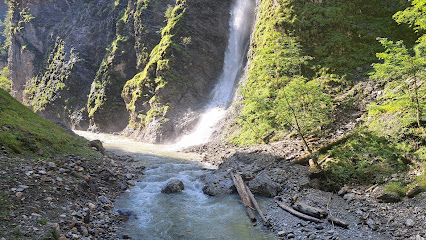
Kitzlochklamm Gorge
Explore Kitzlochklamm Gorge: A breathtaking natural wonder in the Austrian Alps, perfect for hikers and nature enthusiasts.
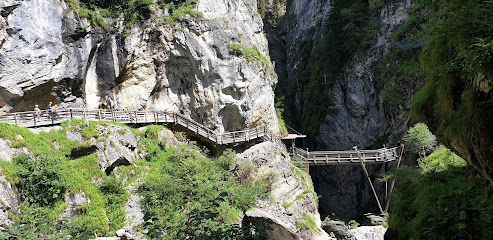
Hochkönig Bergbahnen - Ski amadé
Experience the thrill of skiing and breathtaking beauty at Hochkönig Bergbahnen, an unforgettable alpine escape in the heart of Austria.
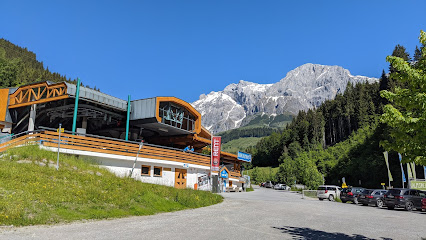
Salzburg Museum
Discover the rich cultural tapestry of Salzburg at the Salzburg Museum, where history, art, and interactive exhibits come together.
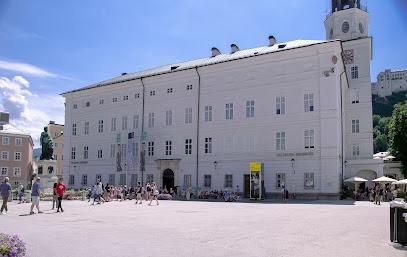
Wasserfall Bischofshofen (UNESCO-Geopark Erz der Alpen)
Explore the breathtaking Wasserfall Bischofshofen in the UNESCO Geopark Erz der Alpen, a paradise for hikers and nature lovers alike.
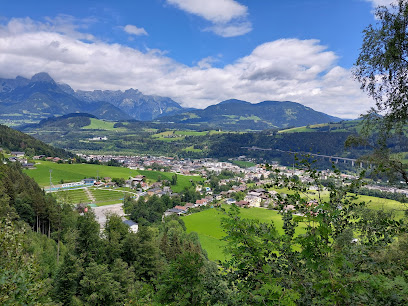
Sporer Likör- & Punschmanufaktur
Experience the authentic flavors of Salzburg with Sporer Likör- & Punschmanufaktur's exquisite liqueurs and punch, steeped in local tradition.
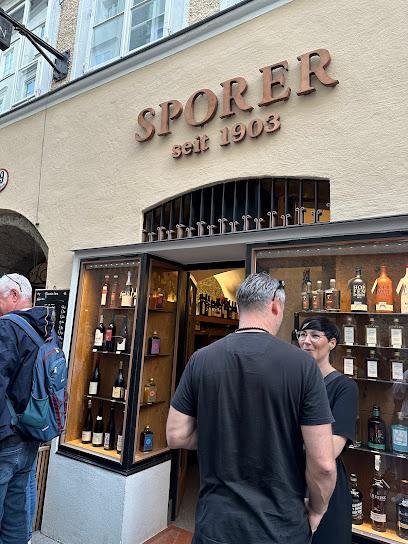
Toni's Almspielplatz
Discover the joy of outdoor play at Toni's Almspielplatz, a picturesque playground nestled in the stunning Mühlbach am Hochkönig region of Austria.
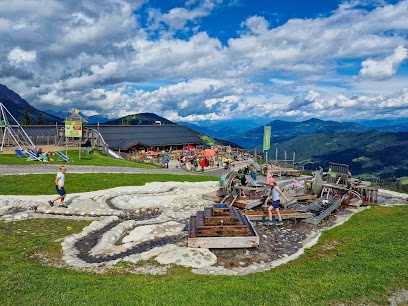
Goldegger See
Discover the tranquil beauty of Goldegger See in Hofmark, an idyllic alpine lake perfect for hiking, swimming, and relaxation amidst breathtaking landscapes.
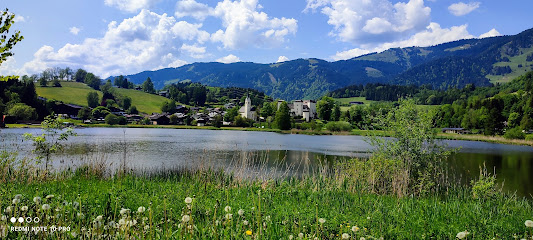
Schaubergwerk Kupferzeche Hüttau
Discover the hidden treasures of Austria's mining history at Schaubergwerk Kupferzeche Hüttau, a captivating underground adventure.
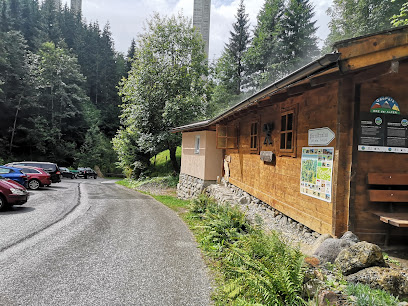
Pfarr- und Wallfahrtskirche Maria Alm
Explore the Pfarr- und Wallfahrtskirche in Maria Alm, a stunning Catholic church surrounded by the breathtaking beauty of the Austrian Alps.
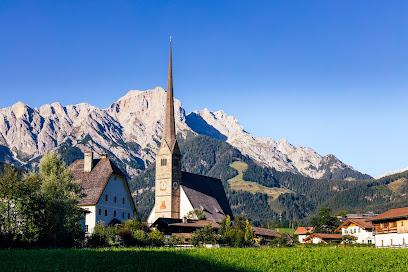
Museum Schloss Ritzen
Discover the rich cultural heritage of Saalfelden at Museum Schloss Ritzen, where history and art come alive in a stunning alpine setting.
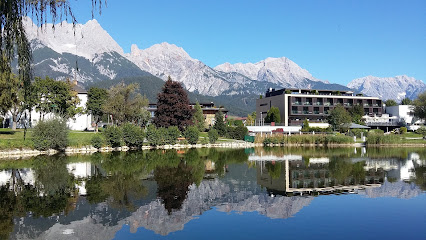
Entrische Kirche
Explore the enchanting Entrische Kirche in Dorfgastein, a historical landmark offering breathtaking views and a glimpse into Austria's rich cultural heritage.
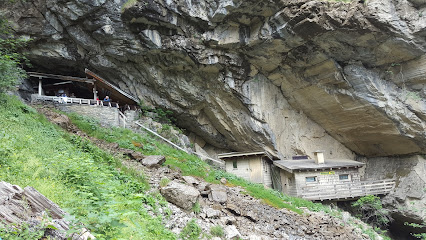
Bluntau Wasserfall
Explore the breathtaking Bluntau Wasserfall in Golling an der Salzach, a must-visit natural wonder surrounded by stunning Alpine landscapes.
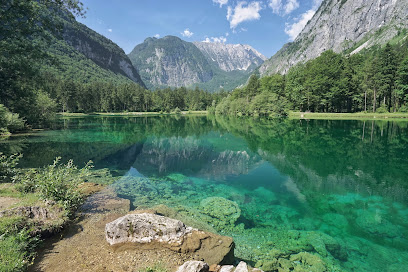
Essential places to dine
Tom Almhütte
Experience exquisite dining at Tom Almhütte – a hidden gem in Maria Alm offering stunning views and delightful cuisine.
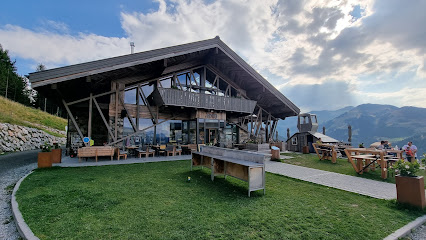
Tiergartenalm
Experience alpine dining at Tiergartenalm: where stunning views meet authentic Austrian cuisine in a cozy mountain retreat.
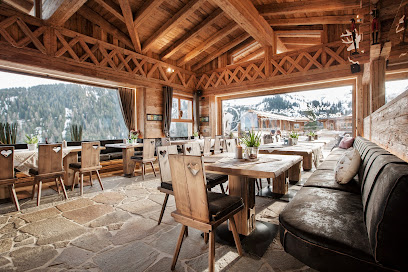
Steinbockalm
Discover culinary delights amidst breathtaking mountain views at Steinbockalm in Dienten am Hochkönig.
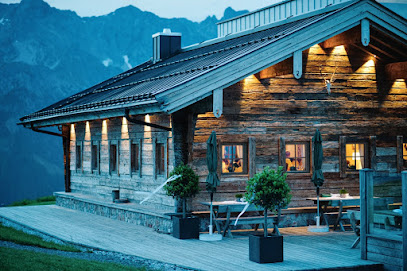
Berghotel Arthurhaus
Discover alpine beauty and culinary delights at Berghotel Arthurhaus in Mühlbach am Hochkönig - your gateway to unforgettable mountain adventures.
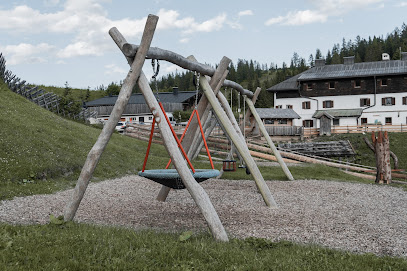
Bergrestaurant Karbachalm
Experience breathtaking views and delightful European cuisine at Bergrestaurant Karbachalm in the heart of Austria's majestic Alps.
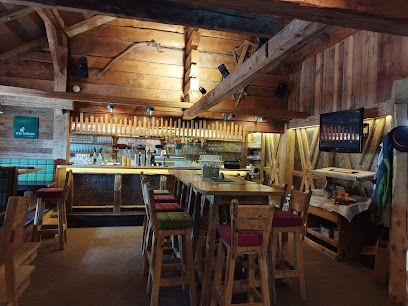
Zapferl Alm
Discover authentic Austrian cuisine at Zapferl Alm in Mühlbach am Hochkönig with stunning mountain views and traditional flavors.
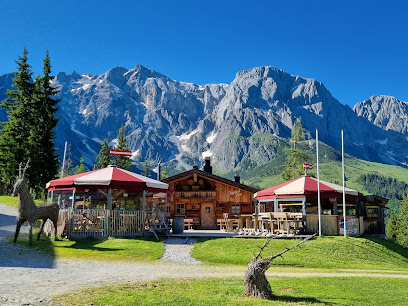
Die Deantnerin
Experience authentic Austrian cuisine amidst stunning mountain views at Die Deantnerin in Dienten am Hochkönig.
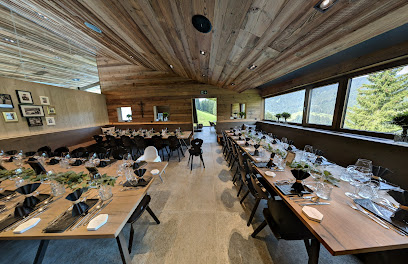
Restaurant Almer Bauernkasten
Experience authentic Austrian cuisine amidst breathtaking alpine scenery at Restaurant Almer Bauernkasten in Maria Alm.
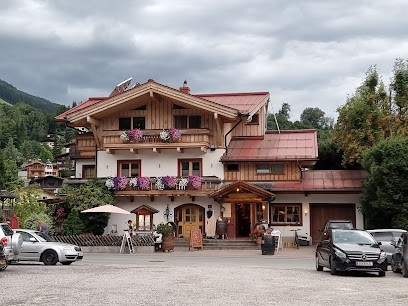
Grünegg Alm & Hochkönig Edelbrennerei
Experience authentic Austrian cuisine and exquisite local spirits at Grünegg Alm & Hochkönig Edelbrennerei amidst breathtaking alpine scenery.
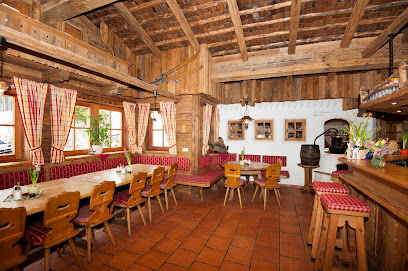
moser-HOCHKÖNIG Genuss Wirtshaus Hotel
Experience authentic Austrian cuisine and warm hospitality at Moser-Hochkönig Genuss Wirtshaus Hotel in scenic Maria Alm.
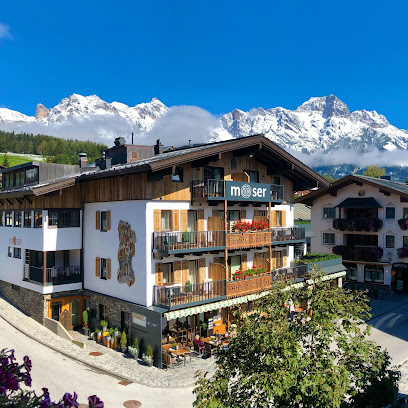
Der Bachwirt
Experience authentic Austrian cuisine at Der Bachwirt in Maria Alm - where every dish tells a story.
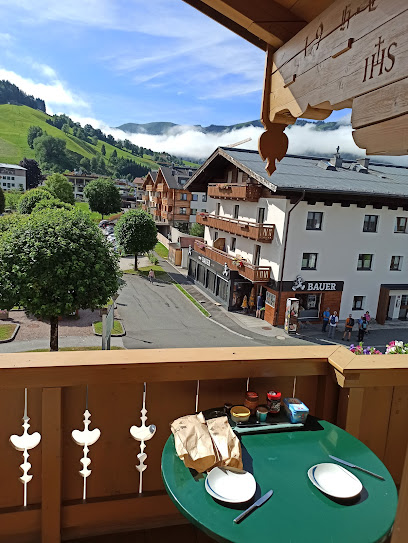
Gasthaus /Jausenstation Pauss Bauer
Savor traditional Austrian flavors at Gasthaus Pauss Bauer in Mühlbach am Hochkönig – where great food meets breathtaking mountain views.
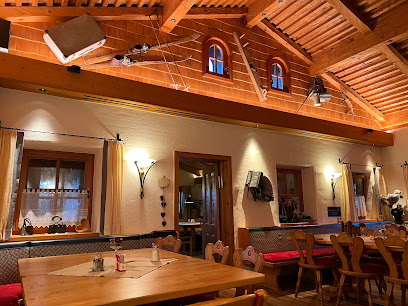
Scheppal Alm Mühlbach am Hochkönig
Experience authentic Austrian cuisine amidst breathtaking alpine views at Scheppal Alm in Mühlbach am Hochkönig.
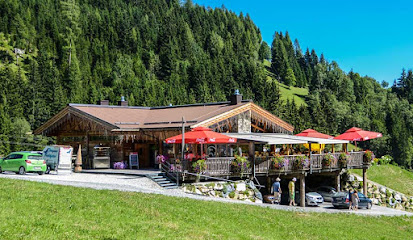
Bürglalm
Experience exquisite local cuisine at Bürglalm while surrounded by breathtaking alpine views in Dienten am Hochkönig.
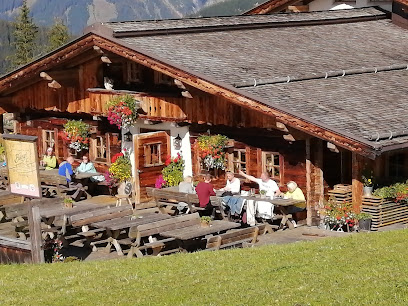
Gabühelhütte
Experience authentic Austrian cuisine at Gabühelhütte in Dienten am Hochkönig, surrounded by breathtaking alpine beauty.
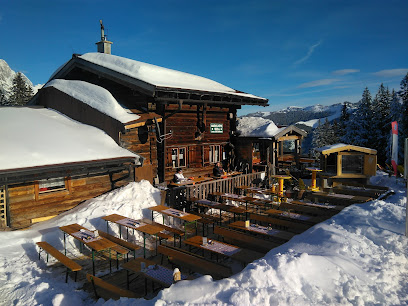
Markets, malls and hidden boutiques
Matrashaus
Discover the enchanting Matrashaus, a mountain cabin in the Hochkönig region, offering breathtaking views and a cozy resting spot for adventurers.
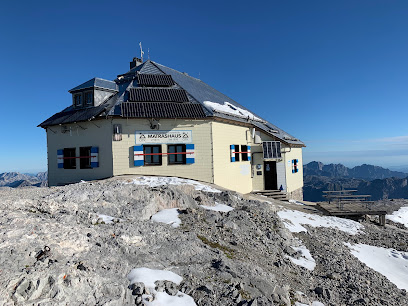
SPAR Pro Mente Mühlbach am Hochkönig
Explore the charm of Mühlbach am Hochkönig with SPAR Pro Mente, your essential supermarket for fresh groceries and local delights.
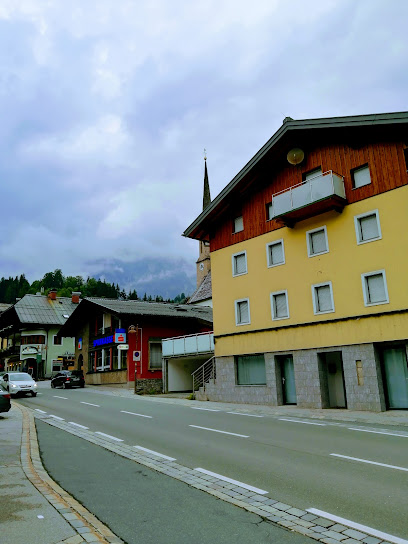
Agasport
Explore the beauty of Maria Alm with Agasport, your trusted partner for ski gear, rentals, and expert advice for all your outdoor adventures.
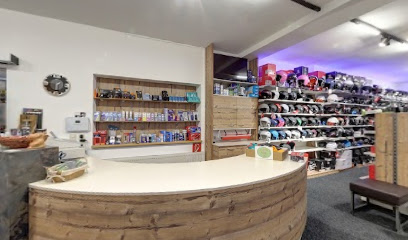
Bäckerei-Cafe-Konditorei Bauer
Experience authentic Austrian pastries and delightful breakfasts at Bäckerei-Cafe-Konditorei Bauer in Dienten am Hochkönig.
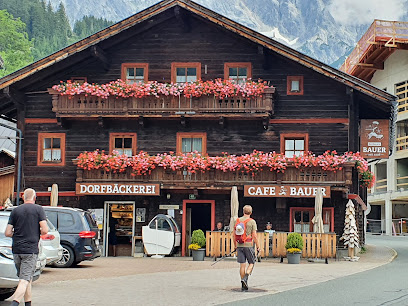
Heimatküche
Discover the authentic taste of Austria at Heimatküche, where local ingredients meet cozy alpine charm in Dienten am Hochkönig.
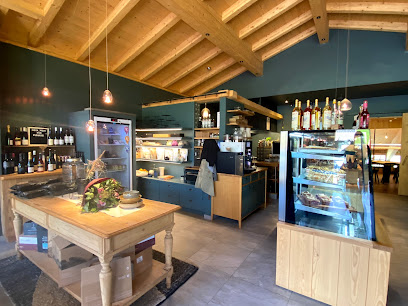
Metal-Shop & Talisman
Explore Metal-Shop & Talisman in St. Johann im Pongau for unique gifts and stylish clothing that embody Austrian culture and craftsmanship.
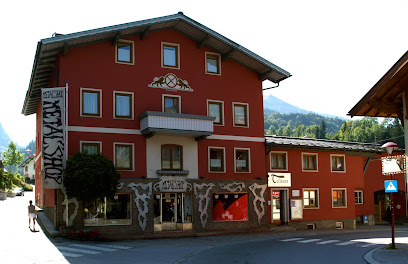
Portis Sportshop
Explore the stunning Hochkönig region with top-quality gear from Portis Sportshop, your one-stop destination for outdoor adventure in Dienten am Hochkönig.
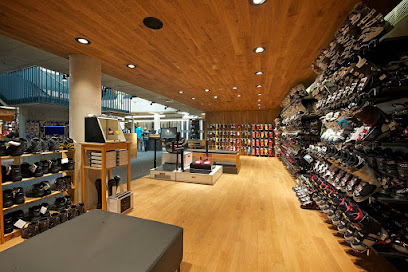
Almleben Trachten Maria Alm
Explore the heart of Austrian culture with traditional costumes and modern fashion at Almleben Trachten in Maria Alm.
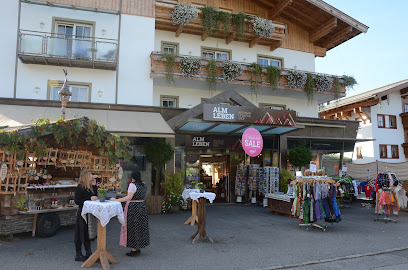
ADEG Baron Dienten
Discover local flavors and everyday essentials at ADEG Baron Dienten, your friendly supermarket in the heart of Dienten am Hochkönig.
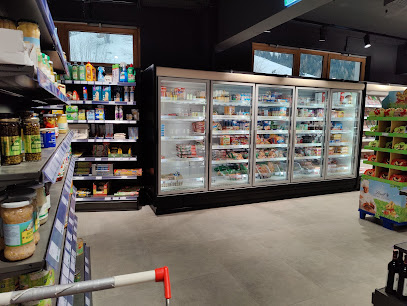
Sport Mayer
Explore the Alps with confidence from Sport Mayer, your trusted sporting goods store in Hinterthal offering top-quality equipment for skiing and hiking.
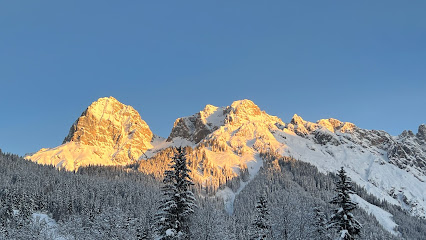
The Peak Hochkönig
Experience breathtaking mountain views and comfortable lodging at The Peak Hochkönig, your perfect alpine getaway in Austria.

Sport 2000 Juss
Explore the Austrian Alps with Sport 2000 Juss, your trusted partner for ski rentals and sporting goods in Mühlbach am Hochkönig.
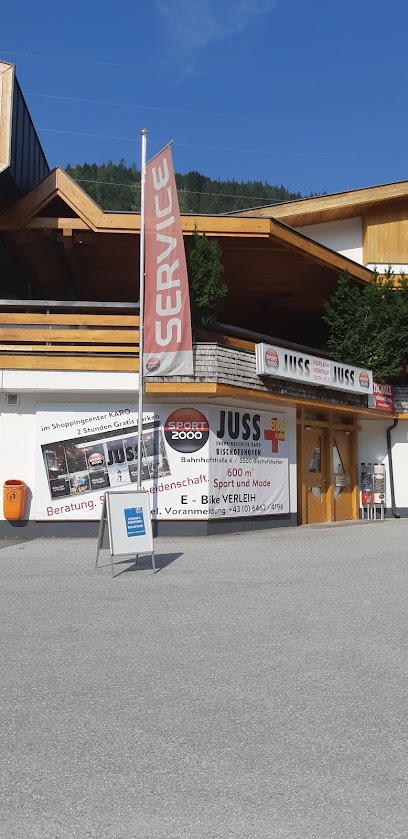
Sportstadl Hochkönig 1 , E-Bike Verleih, Wandershop, Verhuur van E-bikes, Bike Verleih
Discover the beauty of the Austrian Alps at Sportstadl Hochkönig, your ultimate destination for E-bike rentals and hiking adventures.
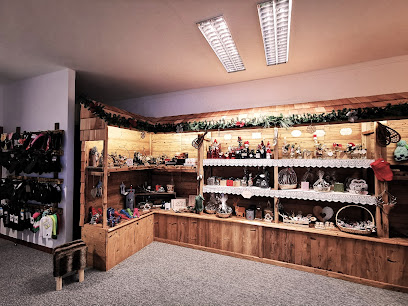
Sport Klaus - Skiverleih
Discover premier ski rental services at Sport Klaus in Dienten am Hochkönig, your gateway to thrilling alpine adventures in the Austrian Alps.
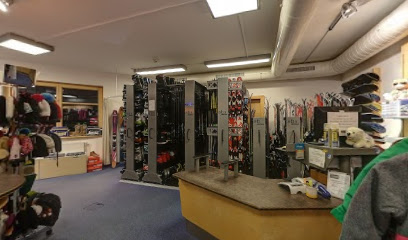
Hochkönig Apotheke Maria Alm
Discover Hochkönig Apotheke in Maria Alm: Your trusted pharmacy for health essentials in the heart of the Austrian Alps.
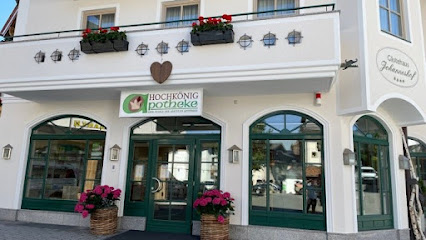
Essential bars & hidden hideouts
Tom Almhütte
Discover Tom Almhütte: a mountain restaurant in Maria Alm offering traditional Austrian cuisine, stunning views, and a unique dining experience amidst nature.
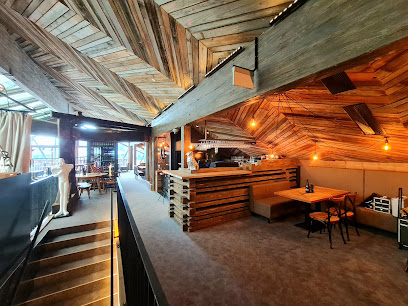
Tiergartenalm
Experience the rustic charm and culinary delights of Tiergartenalm, the perfect mountain retreat in the heart of the Austrian Alps.
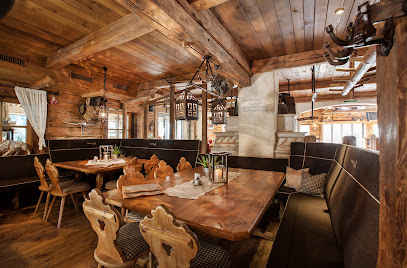
Steinbockalm
Discover the authentic flavors of Austria at Steinbockalm, a cozy restaurant in Dienten am Hochkönig, perfect for every mountain explorer.
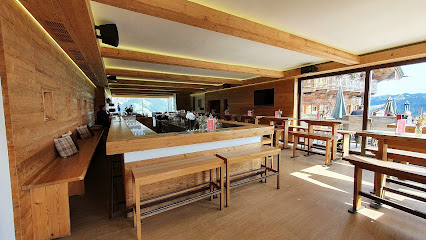
Bergrestaurant Karbachalm
Experience exquisite European cuisine and breathtaking mountain views at Bergrestaurant Karbachalm in Mühlbach am Hochkönig.
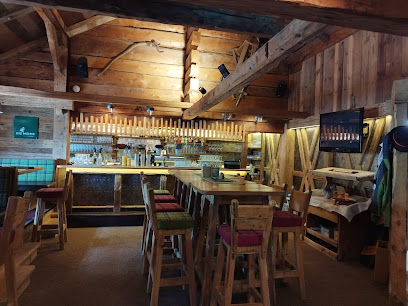
Zapferl Alm
Experience authentic Austrian cuisine amidst breathtaking alpine views at Zapferl Alm in Mühlbach am Hochkönig.
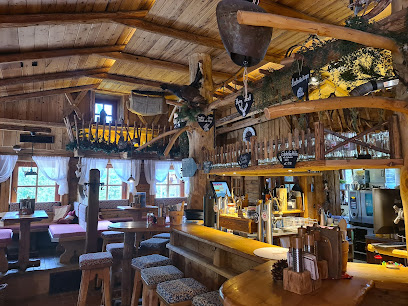
Grünegg Alm & Hochkönig Edelbrennerei
Experience authentic alpine dining and artisanal spirits at Grünegg Alm & Hochkönig Edelbrennerei, a charming restaurant in the heart of the Alps.
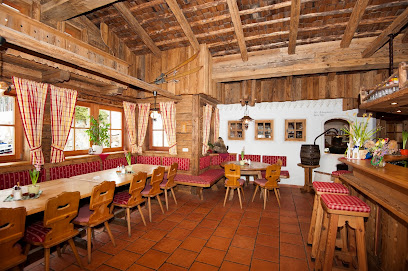
moser-HOCHKÖNIG Genuss Wirtshaus Hotel
Experience the charm of alpine hospitality at Moser-Hochkönig in Maria Alm, combining exquisite dining and comfortable lodging in breathtaking surroundings.
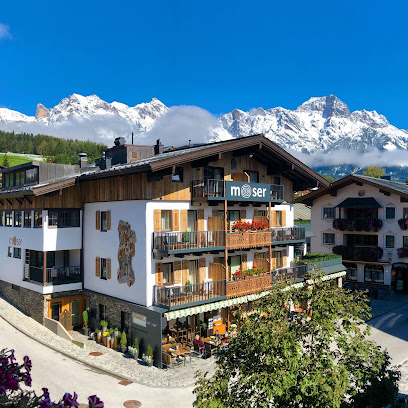
Scheppal Alm Mühlbach am Hochkönig
Discover the authentic tastes of Austria at Scheppal Alm in Mühlbach am Hochkönig, where stunning views meet delicious alpine cuisine.
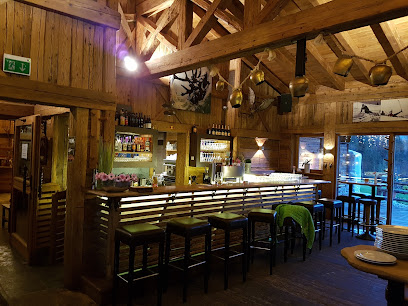
Bürglalm
Discover Bürglalm: A must-visit restaurant in Dienten am Hochkönig offering authentic alpine cuisine with stunning mountain views.
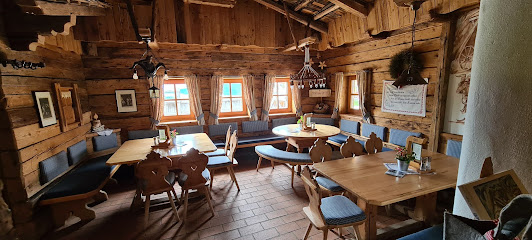
Gabühelhütte
Discover the authentic tastes of Austria at Gabühelhütte, a charming restaurant with breathtaking mountain views and a cozy atmosphere.
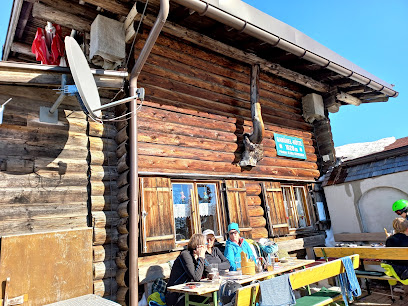
Anderlwirt Mühlbach
Experience the authentic flavors of Austria in a cozy alpine setting at Anderlwirt Mühlbach, perfect for leisurely meals and stunning mountain views.
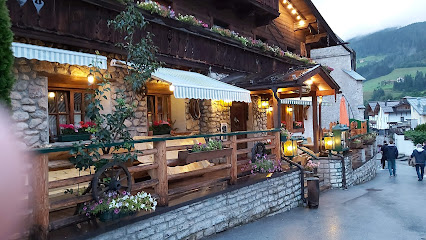
Dengl Alm - Restaurant, Bar
Dengl Alm in Maria Alm offers a vibrant live music experience, delightful local cuisine, and a cozy alpine atmosphere for all visitors.
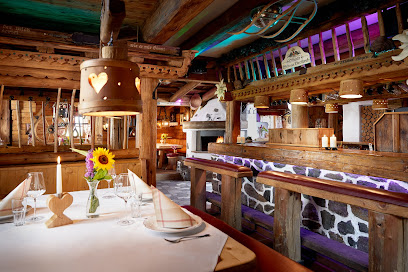
Lilli‘s Maria Alm
Experience the best of alpine dining at Lilli's Maria Alm, where delicious cuisine meets stunning mountain views in a cozy atmosphere.
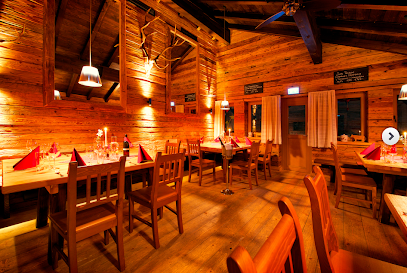
Heimatküche
Experience the Essence of Austrian Cuisine at Heimatküche - A Cozy Restaurant, Café, and Breakfast Spot in Dienten am Hochkönig.
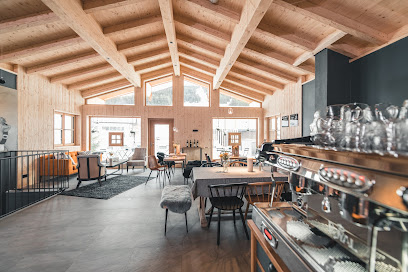
Almbar Hinterthal
Discover the charm of Almbar Hinterthal, where alpine hospitality meets a vibrant bar atmosphere in the heart of Maria Alm.
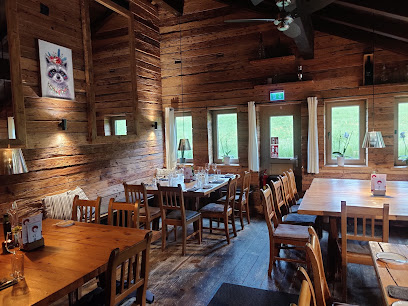
Local Phrases about Hochkönig
-
- HelloServus
[Sair-voos] - GoodbyeAuf Wiedersehen
[Owf Vee-der-zane] - YesJa
[Yah] - NoNein
[N-eye-n] - Please/You're welcomeBitte
[Bit-tuh] - Thank youDanke
[Dahn-kuh] - Excuse me/SorryEntschuldigung
[Ent-shool-dee-goong] - How are you?Wie geht es dir?
[Vee gate es deer] - Fine. And you?Gut. Und dir?
[Goot. Oont deer?] - Do you speak English?Sprechen Sie Englisch?
[Spreck-en Zee Eng-leesh] - I don't understandIch verstehe nicht
[Ick fair-shtay-uh nisht]
- HelloServus
-
- I'd like to see the menu, pleaseIch hätte gerne die Speisekarte, bitte
[Ick hett-uh gehr-nuh dee Shpy-suh-kahr-tuh, bit-tuh] - I don't eat meatIch esse kein Fleisch
[Ick ess-uh kine Fly-sh] - Cheers!Prost!
[Prohst] - I would like to pay, pleaseIch möchte bitte zahlen
[Ick mursh-tuh bit-tuh tsah-len]
- I'd like to see the menu, pleaseIch hätte gerne die Speisekarte, bitte
-
- Help!Hilfe!
[Hil-fuh] - Go away!Geh weg!
[Geh veg] - Call the Police!Rufen Sie die Polizei!
[Roof-en Zee dee Po-lee-tsy] - Call a doctor!Rufen Sie einen Arzt!
[Roof-en Zee i-nen Ahrts] - I'm lostIch habe mich verlaufen
[Ick hah-buh meesh fair-low-fen] - I'm illIch bin krank
[Ick been krank]
- Help!Hilfe!
-
- I'd like to buy...Ich möchte ... kaufen
[Ick mursh-tuh ... kow-fen] - I'm just lookingIch schaue nur
[Ick sh-ow-uh noor] - How much is it?Wie viel kostet das?
[Vee feel koss-tet doss] - That's too expensiveDas ist zu teuer
[Doss ist tsoo toy-er] - Can you lower the price?Können Sie den Preis senken?
[Kern-en Zee den Prize zank-en]
- I'd like to buy...Ich möchte ... kaufen
-
- What time is it?Wie spät ist es?
[Vee shpayt ist es] - It's one o'clockEs ist ein Uhr
[Es ist ien oor] - Half past (10)Halb elf
[Hahlp elf] - MorningMorgen
[Morg-en] - AfternoonNachmittag
[Nahk-mit-tahk] - EveningAbend
[Ah-bent] - YesterdayGestern
[Ges-t-ern] - TodayHeute
[Hoy-tuh] - TomorrowMorgen
[Morg-en] - 1Eins
[I-ns] - 2Zwei
[Tsv-eye] - 3Drei
[Dr-eye] - 4Vier
[Feer] - 5Fünf
[F-oonf] - 6Sechs
[Zeks] - 7Sieben
[Zee-ben] - 8Acht
[A-kht] - 9Neun
[N-oy-n] - 10Zehn
[Tsayn]
- What time is it?Wie spät ist es?
-
- Where's a/the...?Wo ist ein/der...?
[Voh ist ien/dare] - What's the address?Wie lautet die Adresse?
[Vee lowt-et dee Ah-dres-suh] - Can you show me (on the map)?Können Sie es mir zeigen (auf der Karte)?
[Kern-en Zee es meer tsee-gen (ouf dare Kar-te)] - When's the next (bus)?Wann kommt der nächste (Bus)?
[Vahn kohmt dare nehks-tuh (Boos)] - A ticket (to ....)Eine Fahrkarte (nach ....)
[I-nuh Fahr-kar-te (nahkh)]
- Where's a/the...?Wo ist ein/der...?
History of Hochkönig
-
The Hochkönig region has been inhabited since prehistoric times, with evidence of early human settlements dating back to the Neolithic era. Archaeological findings, including tools and pottery, reveal that early settlers were attracted to the area for its fertile valleys and abundant natural resources.
-
During the Roman Empire, the Hochkönig area was a significant part of the province of Noricum. The Romans established trade routes through the region, connecting it to major cities of the empire. Remnants of Roman roads and fortifications can still be found, highlighting the strategic importance of this alpine region.
-
In the Middle Ages, the Hochkönig area became an important center for mining and metalworking, particularly for iron and copper. The wealth generated from these industries led to the construction of castles and fortresses, many of which still stand today. Local legends and folklore from this period are still celebrated in festivals and cultural events.
-
The Hochkönig region has a rich religious history, with several important monasteries and churches established during the medieval period. The pilgrimage church of Maria Alm, dating back to the 15th century, is a notable example of Gothic architecture and continues to be a site of spiritual significance for many visitors.
-
During World War II, the Hochkönig area was affected by the broader conflict in Europe. The region saw the movement of troops and, in some areas, served as a refuge for those fleeing the war. Post-war, the region experienced significant rebuilding and development, leading to the vibrant community seen today.
-
The 20th century brought a new era for Hochkönig as it emerged as a premier tourist destination. The development of ski resorts, hiking trails, and other outdoor activities transformed the region into a year-round attraction. Modern infrastructure now complements the historical and natural beauty, making Hochkönig a beloved destination for travelers from around the world.
-
Hochkönig is renowned for its rich cultural traditions and vibrant festivals. Events like the Almabtrieb, where cattle are decorated and paraded down from the mountains, and the annual Harvest Festival showcase the region's agricultural heritage and community spirit. These traditions provide a deep connection to the past and are a highlight for visitors seeking an authentic cultural experience.
Hochkönig Essentials
-
Hochkönig is located in the Salzburg region of Austria. The nearest international airport is Salzburg Airport (W. A. Mozart), approximately 70 kilometers away. From Salzburg, you can take a taxi, rent a car, or use public transportation. Buses and trains operate from Salzburg to nearby towns such as Bischofshofen and Mühlbach am Hochkönig, from where local buses or taxis can take you to your final destination in Hochkönig.
-
Hochkönig is well-connected through its local bus network, which makes it easy to travel between the towns of Maria Alm, Dienten, and Mühlbach. You can also use taxis for more convenience, especially if you are carrying ski equipment. Renting a car provides flexibility for exploring the surrounding areas at your own pace. During the winter season, ski buses are available to transport you between ski resorts and accommodations.
-
The official currency in Austria is the Euro (EUR). Credit cards are widely accepted in hotels, restaurants, and shops, but it is advisable to carry some cash for smaller establishments, rural areas, and mountain huts. ATMs are readily available in the towns within Hochkönig.
-
Hochkönig is generally a safe destination for tourists. However, always take standard precautions such as avoiding poorly lit areas at night and keeping an eye on your belongings in crowded places. There are no specific high-crime areas targeting tourists, but it's best to stay vigilant and aware of your surroundings.
-
In case of emergency, dial 112 for immediate assistance. The local police station, medical facilities, and pharmacies are available in the nearby towns of Maria Alm, Dienten, and Mühlbach. It is recommended to have travel insurance that covers medical emergencies. For minor health issues, you can purchase over-the-counter medications at local pharmacies.
-
Fashion: Do dress warmly and in layers, especially during the winter months. Avoid overly casual or beachwear in restaurants. Religion: Do respect local customs and traditions, even though the area is not particularly religious. Public Transport: Do be respectful and give up your seat to elderly passengers. Don't eat or drink on public transport. Greetings: Do greet people with a friendly 'Grüß Gott' or 'Servus'. A firm handshake is customary. Eating & Drinking: Do try local Austrian delicacies and accept food offerings graciously. Don't refuse hospitality, as it is considered impolite.
-
To experience Hochkönig like a local, visit the weekly farmers' markets where you can buy fresh produce and traditional Austrian goods. Engage with locals, as they are often friendly and willing to share stories about the region's history and culture. Don't miss the opportunity to hike the Königstour, a famous ski route that offers stunning views of the Alps. For a unique experience, visit one of the Alm huts for traditional Austrian cuisine and a cozy atmosphere.
Trending Landmarks in Hochkönig
-
Hochkönig Bergbahnen - Ski amadé
-
Steinbockalm
-
Berghotel Arthurhaus
-
die HOCHKÖNIGIN - Mountain Resort
-
Bürglalm
-
Toni's Almspielplatz
-
Kings Park Hochkönig
-
Matrashaus
-
Erichhütte
-
Hochmaisbahn Talstation
-
Ferienbauernhof Elmaugut
-
Königsjodler Klettersteig
-
Spiegelsee am Hochkeil
-
DAS HOCHKÖNIG
-
Hochkönig-Stein-OG
Nearby Cities to Hochkönig
-
Things To Do in Bad Gastein
-
Things To Do in Salzburg
-
Things To Do in Hallstatt
-
Things To Do in Kitzbühel
-
Things To Do in Kranjska Gora
-
Things To Do in Innsbruck
-
Things To Do in Klagenfurt
-
Things To Do in Linz
-
Things To Do in Munich
-
Things To Do in Bled
-
Things To Do in Bohinj
-
Things To Do in Škofja Loka
-
Things To Do in Nova Gorica
-
Things To Do in Kamnik
-
Things To Do in Český Krumlov










